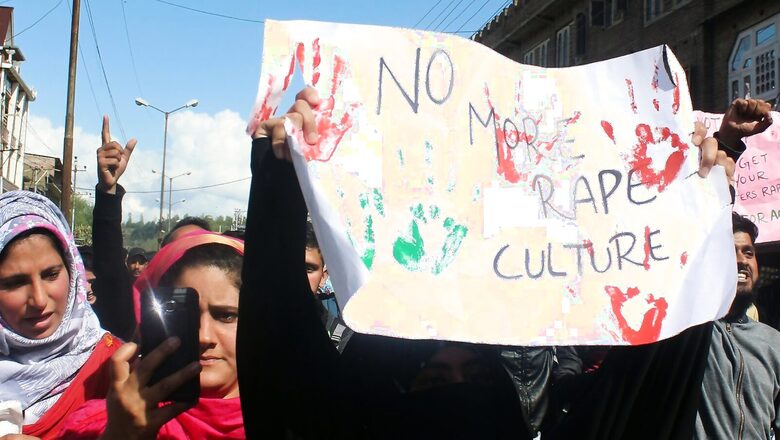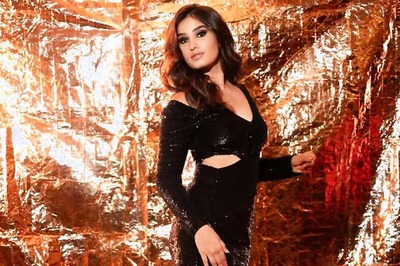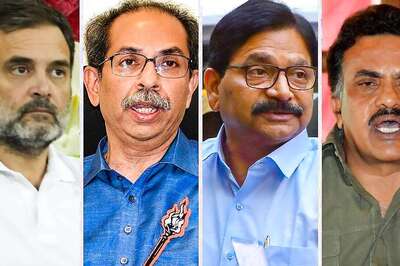
views
Shocking reports of sexual abuse of prisoners incarcerated at Abu Ghraib in Iraq and reports of rape in Sudan, Uganda, and Congo have reignited the conversation about an ancient problem: sexual violence in strife and conflict-torn communities. According to the Office of the UN High Commissioner for Human Rights, “Conflicts and situations of instability exacerbate pre-existing patterns of discrimination against women and girls, exposing them to heightened risks of violations of their human rights.”
In the context of Kashmir, while excesses by the security forces have been highlighted in the media, those carried out by Jihadists and Islamists are largely ignored.
In his article, ‘Rape and Silence in Kashmir’s Jihad’, journalist Siddharthya Roy noted the complications that arise when Kashmiri women speak out. “Beyond the overly conservative society that makes rapes the victim’s burden to bear, what compounds the problem in Kashmir is the political inconvenience of acknowledging rape and assault committed by the keepers of faith and upholders of the Shariah,” he wrote. “Given the polarized debate around Kashmir, acknowledging the crimes of one side can very easily be misconstrued as batting for the other side.” Roy cited a 2006 Human Rights Watch report on rape in Kashmir that described excesses committed by state forces and militants, but was missing any data on the latter.
According to the National Crime Records Bureau, crimes against women in J&K spiked by nearly 11% from 3,069 cases in 2019 to 3,414 in 2020.
The report showed that in 2020, there were nine cases of dowry deaths, 243 rape cases, 349 cases of cruelty against women by their husbands or relatives, 449 cases of kidnapping of women to compel them for marriage, 1,639 cases of assault on women and 1,744 cases of assault on women with the ‘intention to outrage their modesty’.
There are numerous reports of women being molested on the streets, in public transport, while on the way to work or school. Often the abuse and name-calling is dressed up in religious overtones by men looking for an excuse to toy with women in ‘immodest attire’. Women of school or college-going age are usually reluctant to discuss these issues with their parents because even broaching the subject is taboo in most Kashmiri households.
Writer and anthropologist Onaiza Drabu spoke of her experiences as a young woman growing up in Kashmir. “I went cycling at 5.30 am on a route I take every single day and a middle-aged man cycling back from what looked like morning prayers called out to me saying awful lewd things. I was very shocked and since then have taken that route with fear. Often I hear men disapprovingly tell of women walking on the streets wearing a certain type of clothing. There is moral policing and in that, a form of harassment.”
While Drabu’s experience may not sound as extreme as other survivors with truly horrific stories, ‘eve-teasing’ in Kashmir has been normalised to a point where it is barely acknowledged as a legitimate problem faced by women on a daily basis.
When the #MeToo movement erupted in India, several prominent personalities from media, entertainment and journalism were exposed as serial offenders. However, one sub-thread of the debacle that went largely unnoticed was an organisation called Kashmir Women’s Collective that identified some well-known Kashmiri writers and journalists as sexual predators. Among them were NYT writer Sameer Yasir, TKW founder Fahad Shah, JKPI (Jammu and Kashmir Policy Institute) co-founder Javaid Trali and author Gowhar Geelani. Among these, Fahad Shah has been arrested, albeit for crimes of a different nature, while the rest are still conducting business as usual. The exposé by the Kashmir Women’s Collective was carried in multiple news outlets but did not get much traction with India’s usually hyper-vocal feminists.
NYT’s New Delhi correspondent, Suhasini Raj, was not available to comment on Sameer Yasir, while Burhan Raina, ‘PR Coordinator’ for JKPI, implied there was a conspiracy afoot to malign Trali. “Actually, you don’t know the reality and it was a deliberate attempt by that girl…the allegations are totally fake. This was a complete team work, against him to tar his reputation.” Raina agreed to speak to Trali about the matter, but when I followed up a few days later, he sent me a flurry of emojis ridiculing my queries. When asked about where JKPI’s funding came from, he declined to comment. Raina’s Instagram profile describes him as a “film actor” and “film director”, however, I could not find any film credits to his name, or any other credits for that matter.
Javaid Trali, known as a ‘habitual offender’ in his native Kashmir, is a PDP worker known for his proximity to terror-accused Waheed Rehman Para. His partner, Touseef Raina, a municipal counsellor from Baramulla, is always present at Indian government functions while Trali maintains close relations with the openly separatist PDP.
Most women prefer to stay silent about their experiences due to victim-shaming, coupled with social stigma and a notoriously inefficient legal system. “Women in India are conditioned to remain silent about sexual harassment, rape and abuse,” says Anjali Pathak, founder of an NGO called ‘Urja’ that works to rehabilitate battered women in the NCR.
“Stigma and the culture of silence surrounding these issues emboldens perpetrators and maintains the status quo. Unfortunately, women who name and call out their abusers are victim-shamed, abused, trolled and intimidated. The ordeal of recounting their experience to the police, going to courts and reliving the trauma results in ‘double victimisation’ for the survivor.”
I asked Drabu what in her view could be done to prevent men acting with impunity. “I think naming and shaming to start would be a first step. Very often I’ve heard abusers being talked of as men with a good heart but a ‘problem’. That needs to change.”
The women of Kashmir who are educated and quite modern in their thinking need to be trained in methods of self-defence like carrying pepper sprays and learning some effective martial art moves as protection against these predators. Serious thought should also be given by the state authorities to deploy a special Women Police Vigilance Force who could be stationed in Mufti at known “addas” of such eve-teasers and abusers to catch them in the act. Until such preventive measures are firmly in place, women will continue to be targeted for their gender.
Vikram Zutshi is a filmmaker, public speaker and cultural critic. The views expressed in this article are those of the author and do not represent the stand of this publication.
Read all the Latest News, Breaking News, watch Top Videos and Live TV here.



















Comments
0 comment